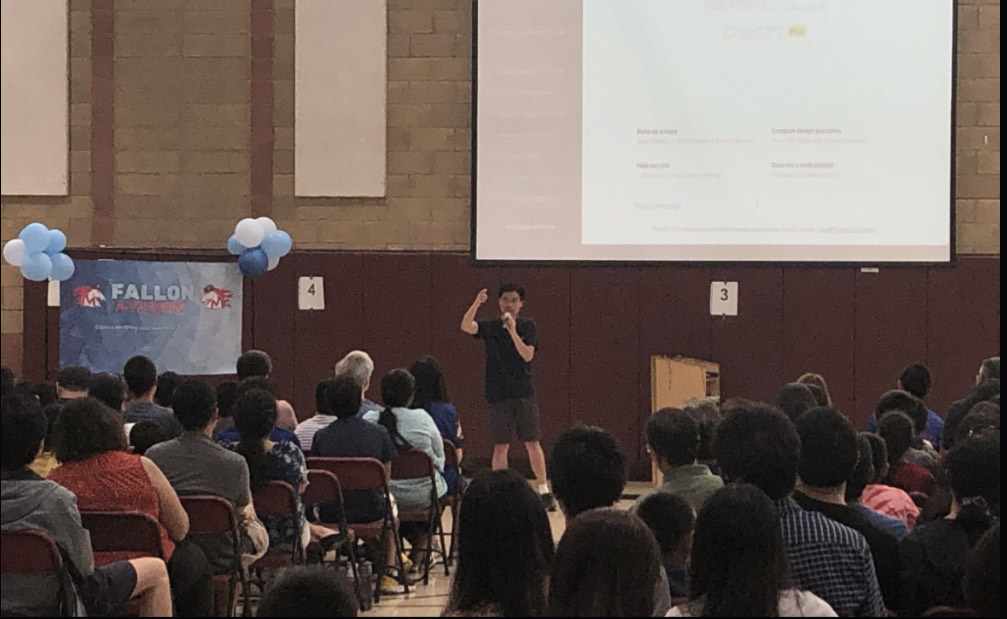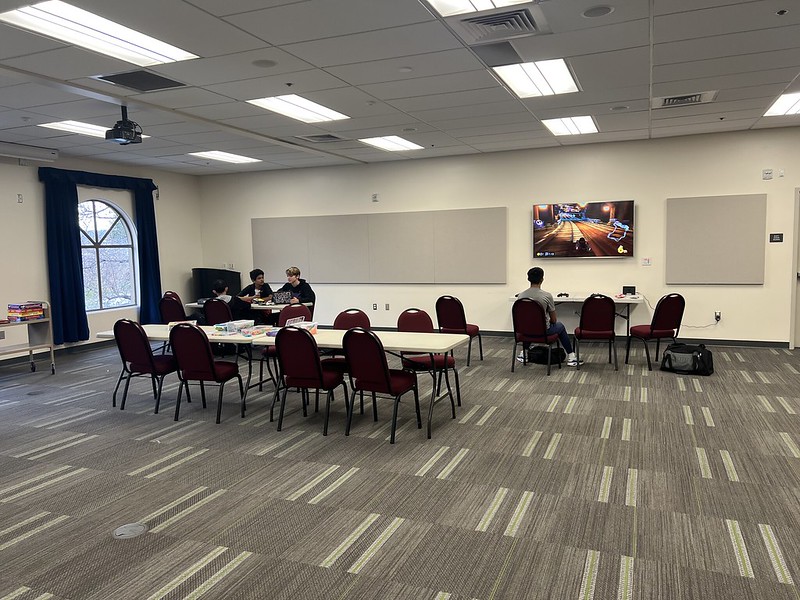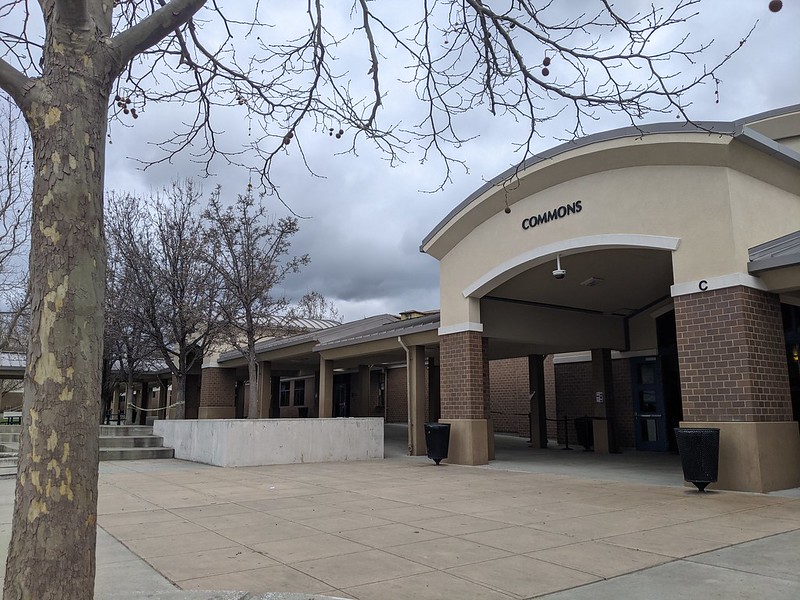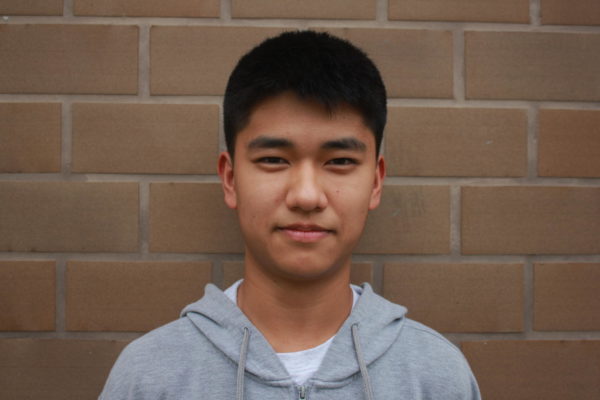Professor Po-Shen Loh, entrepreneur and coach of USA’s International Math Olympiad team, delivered a talk on the ChatGPT invasion to 300 students and parents at Fallon Middle School on Aug. 25.
In his talk, Professor Loh explored the weaknesses of AI language models and emphasized the importance of understanding others. Sophomore Vedanth Dala was one of the students in the audience.
“I entered the [multipurpose room] quite early … and I could see Professor Loh standing near the podium,” Dala recalled. “I always looked up to [professional mathematicians], so it was quite surreal to see one in real life.”
Professor Loh started his talk by acknowledging the undeniable power of ChatGPT.
“The difference between you and [ChatGPT] is that you get to see about 1 million words to train your brain … large language models are being trained on 1 trillion words,” he said. “So it’s like the collective experience of a million people.”
Despite the intimidating scale of these numbers, Professor Loh maintains that ChatGPT is fundamentally just a “pattern-matching engine.” He argues that while large language models are highly proficient when it comes to “standard” problems whose solutions are well-known, such AI can falter when asked to solve one-of-a-kind (but not necessarily challenging) problems. This shortcoming presents a window of opportunity for students looking to rival the power of AI.
“We need to teach people how to do non-standard things,” Professor Loh stressed. “And the way we do that is to let them be the ones who come up with the ideas.”
In addition to non-standard problem-solving, Professor Loh put forward another way to stay competitive against ChatGPT: empathy.
“We have the ability to [empathize],” Professor Loh said, “because my biological hardware is compatible with your operating system.”
At this analogy, ripples of laughter swept across the older members of the audience. Professor Loh elaborated, explaining that as humans, we have this innate “hardware” that allows us to understand others—in particular, their emotions, their needs, and “how they tick.” While computers may have a difficult time empathizing with humans, it comes as second nature to us.
Professor Loh pressed on, encouraging the idea of using one’s natural gift of empathy to understand human “pain points,” places where humans face inconvenience or hardship in their lives.
“Learn how to understand other people, to understand human pain points because ultimately, [the] money you’re going to earn comes from other people,” he said.
This act of answering others’ pain points is what Professor Loh also calls creating “value.” He argues that in order to stay in demand, both in the workforce and in other areas of life, one must always look around and think of ways to “create some value.” This notion of value particularly resonated with Dala.
“Learn how to understand other people, to understand human pain points because ultimately, [the] money you’re going to earn comes from other people.”
“One of the key takeaways that I had was how … after creating value for others, there always will be value that comes back to you,” Dala said.
Toward the end of his talk, Professor Loh summarized the ability to empathize, understand pain points, and create value with one succinct term: EQ, or emotional intelligence. At Dougherty Valley and other high schools, students commonly attempt to demonstrate their possession of EQ, something Professor Loh has observed over the past few years.
“There’s a lot of high school students who make clubs and the clubs have three people in them: president, vice president, and secretary,” Professor Loh joked. “People spend a lot of time trying to look like they have EQ [but there’s] no shortcut.”
In order to be most prepared for the uncertain future ahead, Professor Loh urges students to “use thinking abilities combined with EQ [to] become a complete person.”









